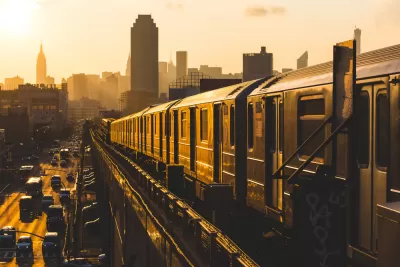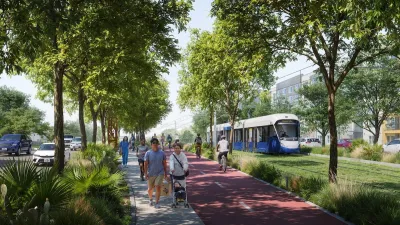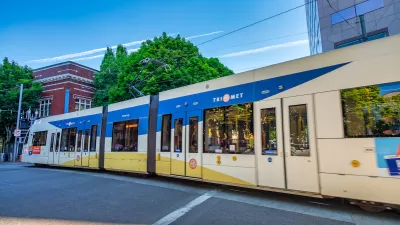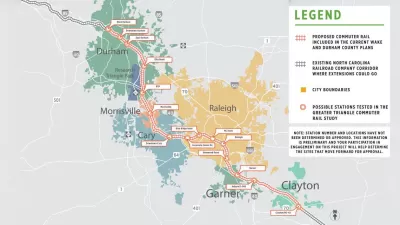While other countries are boosting investment in their light and heavy rail systems, transit projects in U.S. cities have slowed, signaling diminished commitment to transit expansion.

While countries like Canada, Egypt, France, and others are increasing their investment in high-quality public transit, the United States is falling behind, with the kilometers of rail opened declining by roughly 30 percent between the 2000s and 2010s. Yonah Freemark analyzes the data in The Transport Politic.
According to data from the Transit Explorer (which excludes Australia and south and east Asia), the United States currently has the most kilometers of heavy or light metro rail. Freemark points out that about a third of this network is concentrated in the New York region. “But New York actually has fewer active heavy rail lines in service than it did in 1950,” and transit investment in the city and around the country has slowed in recent years. Neither New York or Chicago have plans to expand their systems in the coming years.
Freemark outlines the different efforts taking place around the world to improve transit. Cairo, Istanbul, Paris, and others are actively building new light rail lines, with Paris set to overtake London and New York for most rail kilometers. While U.S. cities like Los Angeles and Seattle have ambitious plans for expanding their transit systems, Freemark writes, “These conditions overall tell a story of declining US commitment to transit expansion in the context of large growth in other countries around the world.”
FULL STORY: Historical Trends Show a Decline in Investment in High–Quality Transit in the US—And an Uptick Elsewhere

Alabama: Trump Terminates Settlements for Black Communities Harmed By Raw Sewage
Trump deemed the landmark civil rights agreement “illegal DEI and environmental justice policy.”

Study: Maui’s Plan to Convert Vacation Rentals to Long-Term Housing Could Cause Nearly $1 Billion Economic Loss
The plan would reduce visitor accommodation by 25% resulting in 1,900 jobs lost.

Planetizen Federal Action Tracker
A weekly monitor of how Trump’s orders and actions are impacting planners and planning in America.

Waymo Gets Permission to Map SF’s Market Street
If allowed to operate on the traffic-restricted street, Waymo’s autonomous taxis would have a leg up over ride-hailing competitors — and counter the city’s efforts to grow bike and pedestrian on the thoroughfare.

Parklet Symposium Highlights the Success of Shared Spaces
Parklets got a boost during the Covid-19 pandemic, when the concept was translated to outdoor dining programs that offered restaurants a lifeline during the shutdown.

Federal Homelessness Agency Places Entire Staff on Leave
The U.S. Interagency Council on Homelessness is the only federal agency dedicated to preventing and ending homelessness.
Urban Design for Planners 1: Software Tools
This six-course series explores essential urban design concepts using open source software and equips planners with the tools they need to participate fully in the urban design process.
Planning for Universal Design
Learn the tools for implementing Universal Design in planning regulations.
Caltrans
Smith Gee Studio
Institute for Housing and Urban Development Studies (IHS)
City of Grandview
Harvard GSD Executive Education
Toledo-Lucas County Plan Commissions
Salt Lake City
NYU Wagner Graduate School of Public Service





























